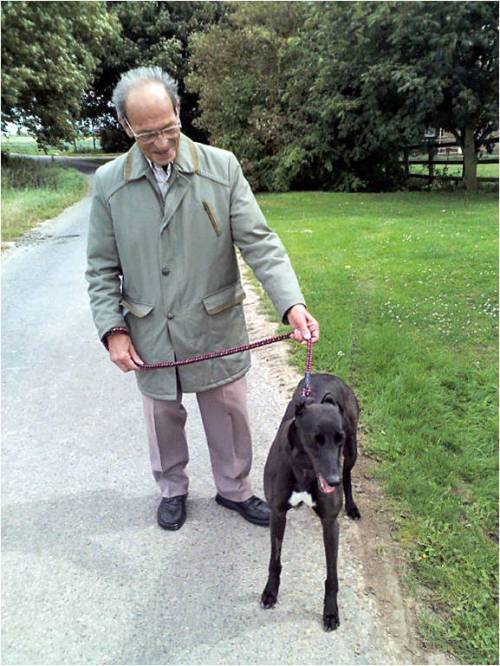It is well reported that those who suffer a stroke often experience difficulties afterwards with their sight, alongside other more recognisable symptoms, such as partial paralysis or slurred speech. Dependent on the type of stroke, difficulties can arise with peripheral vision, vision processing and eye movements, including nystagmus. Where nystagmus is acquired, following a stroke or similar medical trauma, the effects can be disorientating and debilitating, as the individual begins to deal for the first time with a moving image of the world.
This theoretical knowledge has been brought home to me recently, following my elderly father’s stroke, 10 days ago. My father has suffered a right side brain stroke which means that the left side of his body has been weakened, affecting his mobility, his speech is slurred due to the drop on the left side of his mouth, his cognitive and sequencing abilities are reduced and his peripheral vision on the left side is impaired. All in all, this is a devastating condition for him and everyone supporting him.
Dad doesn’t have nystagmus-like lack of eye movement control, but he is unaware of people and objects on his left side and cannot read text. He can recognise faces when nursing staff or visitors arrive in front of him and can see the clock on the wall, only too aware of how slowly time seems to be passing as he waits impatiently for some sign of recovery.
Formerly an avid reader, devouring his favourite books on military history, Dad has asked me to take home his reading glasses. If they remain at his bedside they will simply serve as a reminder of the pleasure he is currently denied. His consultant explains that it is not the eyes which are damaged, but rather the brain’s ability to process messages sent through by them. Until the brain can recover, Dad’s reading glasses must remain safely tucked away in my handbag, to be offered again gently at each hospital visit in the hope that today he will be able to select his own lunch dish from the menu card.
The Nystagmus Network provides information and support to people affected by Acquired Nystagmus. The Stroke Association offers a wealth of guidance to people affected by stroke, their families and carers.
Get well soon, Dad. Mary will be waiting here for you.

Dad and his beloved Mary
Leave a comment